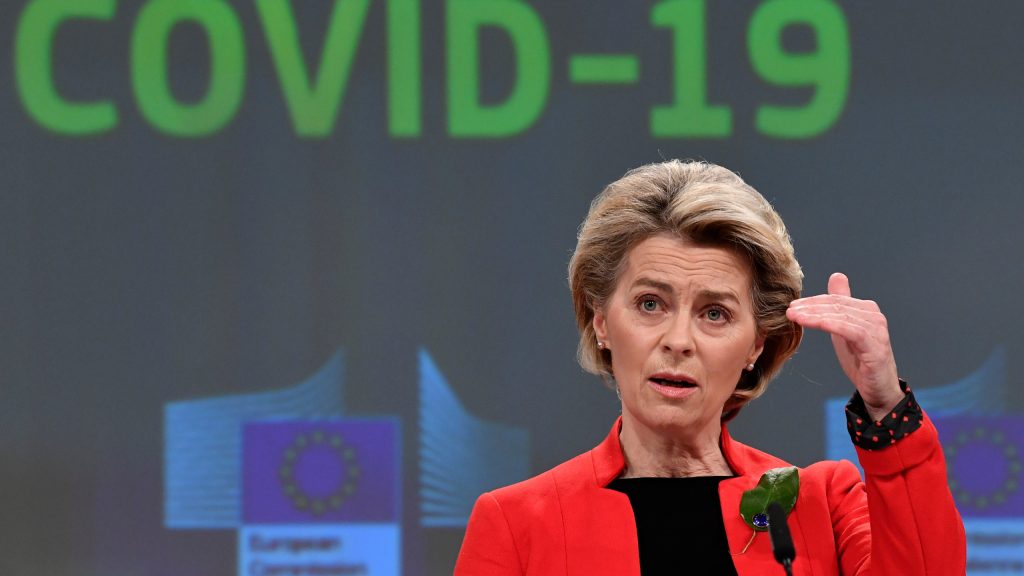
With the start of vaccination against COVID-19, the first diplomatic friction between the EU and the United Kingdom after Brexit. One month after the completion of the agreement that sealed the UK's exit from the bloc, both fight a vaccine war against COVID-19, creating tension in a process of rebuilding their bilateral relations, in addition to risking delaying global efforts to combat the health crisis.
Due to the agility of the British authorities in approving immunization agents and signing contracts with suppliers, the United Kingdom was the second state to start vaccinating its population in the world, second only to Russia, Therefore, it has a positive contrast in relation to the economic bloc of which it was once a member., where signatures with manufacturers were delayed and the race against the virus is moving at a slow pace.
At the heart of the problem, there are production delays in the Pfizer-BionTech and AstraZeneca-Oxford vaccines, which led the EU to announce bureaucratic export measures for vaccines made in its territory with the aim of prioritizing the local population, what should affect the UK immunization campaign, since the doses they purchased from Pfizer come from factories in Belgium. Beyond bureaucratic measures, Threats to completely halt vaccine exports were made in a statement by the President of the European Commission, Ursula von der Leyen, in day 23 March. In contrast, in an interview with the Italian newspaper La Reppublica, the company's executive director, Pascal Soriot, said he never promised to deliver vaccines to the European bloc as quickly as he did to the United Kingdom, since the last one signed the contract three months before.
Such a British advantage in the race for immunization even contributed to strengthening public opinion in favor of Brexit and in the way in which the British government conducted the vaccination of the population.. An Ipsos MORI survey showed that two-thirds (67 Percent) of Brits believe the UK has handled the COVID-19 vaccination program better than governments in EU countries. Two fifths (40 Percent) of Britons believe Brexit has improved Britain's response to the COVID-19 pandemic.
This refers to a scenario in which the feeling of nationalism is strongly reborn in Europe, in which ideological and political disputes on the international scene overlap with public health. In this way, which may result in severe consequences, such as delays in vaccine production and losses to poor nations, affecting an entire global vaccination chain.
This “war over vaccines” has managed to expose a power vacuum and lack of leadership in Europe. On the other hand, This situation served for the United Kingdom to finally test its ability to stand out internationally in facing global challenges and to demonstrate the relevance and possible superiority it will have in driving international agendas that require cooperation after being outside the European Union..
References:
MATTHEWS, Owen. Britain’s Been Hammered by Brexit, but It Got the Vaccine Right. Foreign Policy. Available in: <https://foreignpolicy.com/2021/02/01/britain-post-brexit-rocky-european-union-covid-vaccine/>. Access in: 10 Apr. 2021.
The Brexit vaccine war is a failure of empathy. LSE BREXIT. Available in: <https://blogs.lse.ac.uk/brexit/2021/03/24/the-brexit-vaccine-war-is-a-failure-of-empathy/>. Access in: 10 Apr. 2021.
EU and UK are locked in battle over vaccines, increasing post-Brexit tensions. Or Balloon. Available in: <https://oglobo.globo.com/mundo/ue-reino-unido-travam-batalha-por-vacinas-aumentando-tensoes-no-pos-brexit-1-24857230>.
UK’s Remainers question love for EU amid vaccine row. POLITICO. Available in: <https://www.politico.eu/article/remainers-brexit-uk-eu-coronavirus-vaccine-row/>. Access in: 10 Apr. 2021
Authors: Ana Carolina Olmedo and Pedro Soares, NENE/ESPM researchers.
